WikiFX Valentine's Message | Trade Safely, Together Every Step of the Way
In the Forex Market, Trust Is Not a Promise — It’s Verified Through Safety, Transparency, and Support
简体中文
繁體中文
English
Pусский
日本語
ภาษาไทย
Tiếng Việt
Bahasa Indonesia
Español
हिन्दी
Filippiiniläinen
Français
Deutsch
Português
Türkçe
한국어
العربية
Abstract:As WikiEXPO Dubai concludes successfully, we had the pleasure of interviewing MR. Gustavo, the Chairman and Founder of Carter Capital Management. (Sustainable Digital Assets Management) and Palmer Advisory and Consulting. Palmer is a global business that develops advanced fintech/digital technology solutions and works with Blockchain technologies.
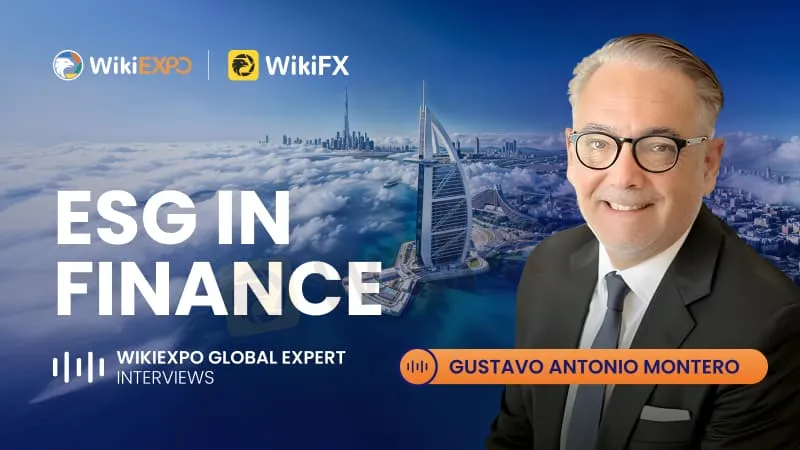
As WikiEXPO Dubai concludes successfully, we had the pleasure of interviewing MR. Gustavo, the Chairman and Founder of Carter Capital Management. (Sustainable Digital Assets Management) and Palmer Advisory and Consulting. Palmer is a global business that develops advanced fintech/digital technology solutions and works with Blockchain technologies. Palmer mission is to help solve the challenges faced by the increasing business requirements in Digital Assets and the Sustainability Industries around the world. When in Switzerland, Gustavo also opened and headed from cero Standard Chartered Bank and was in the Board of Directors of Cramer Bank (wealth management). He is an expert in Exit Strategies and Company structuring. Gustavo was also party to the NYSE bell ringing ceremony when in the Board of XShares of the first Carbon Credit ETF funds floated in the Stock market.
With extensive expertise in exit strategies, corporate structuring, and sustainable finance, Mr. Gustavo shared his perspectives on how blockchain is revolutionizing ESG integration, the evolution of carbon markets, and the role of platforms like WikiFX in driving transparency across the financial ecosystem.
1. Youve been deeply involved in sustainable finance and digital asset management. How do you see the convergence of ESG principles and blockchain technology shaping the investment landscape?
The convergence of ESG principles and blockchain technology is fundamentally reshaping the investment landscape by introducing a new layer of transparency and data integrity. Historically, ESG investing has been hindered by a reliance on self-reported, often unaudited, corporate data, leading to widespread “greenwashing.” Blockchain, as a decentralized and immutable ledger, offers a “prove-me” solution to this “trust-me” problem. Key metrics—from a factory's water usage to a supplier's labor standards—can be recorded directly and permanently onto a blockchain, creating a verifiable, time-stamped audit trail that investors can use to validate a company's sustainability claims.
If you go a bit deeper and beyond just data verification, this fusion is creating entirely new, programmable, and transparent investment products. Tokenization allows for the creation of digital assets like “smart” green bonds, which can be programmed to automatically release funds or pay investors only when specific, verified environmental milestones are met. This technology also enables fractional ownership in green infrastructure, such as a solar farm or a wind turbine, democratizing access for smaller investors and unlocking new sources of capital for sustainable projects.
Clearly , the technology is revolutionizing supply chain traceability, which is critical for the “S” (Social) and “E” (Environmental) components of ESG. By tracking goods from origin to final sale on a shared ledger, blockchain can provide auditable proof of claims like “conflict-free” minerals, “fair-trade” coffee, or “sustainable” palm oil. This granular visibility allows investors to assess supply chain risks more accurately and hold companies accountable for their commitments, ultimately embedding sustainable and ethical practices directly into the financial architecture.
2. Having helped launch one of the first Carbon Credit ETFs, how do you view the evolution of carbon markets and their integration with tokenized assets?
I must say that carbon markets first evolved from regulatory frameworks like the Kyoto Protocol, establishing “cap-and-trade” systems where companies traded emissions allowances. Alongside these compliance markets, voluntary markets grew, allowing organizations to fund projects—like reforestation or renewable energy—that remove or prevent emissions, generating carbon credits. However, these traditional markets have historically been plagued by challenges: they are often opaque, highly fragmented, and illiquid. This lack of transparency and a standardized ledger made it difficult to track credits, verify their retirement, and prevent an “offset” from being sold or claimed multiple times.
The integration of tokenized assets represents the next major evolution, aiming to solve these legacy issues through blockchain technology. In this new model, a verified carbon credit from a registry is “tokenized,” creating a unique digital asset on a blockchain. This brings radical transparency, as the entire lifecycle of the credit—from its issuance to its “retirement” (when it's permanently “burned” or destroyed to claim the offset)—is recorded on an immutable public ledger. This process programmatically prevents double-spending, enhances global liquidity by enabling 24/7 trading on digital exchanges, and democratizes access for a wider range of investors, creating a more efficient and trusted financial infrastructure for climate action.
3. From your experience building banks and startups, whats the key to structuring resilient companies in a rapidly changing regulatory environment?
The key to structuring resilient companies in a rapidly changing regulatory environment is to abandon a rigid, reactive compliance model in favor of proactive organizational agility. In the past, compliance was often a siloed legal function that enforced a checklist of current rules. Today, with regulations on data privacy, ESG, and AI emerging and evolving constantly, that static approach is a liability. Resilient companies embed regulatory awareness directly into their core strategy and product development. This involves active “horizon scanning” to anticipate future legal shifts and building flexible, modular systems that can be adapted quickly—treating new regulations as a predictable part of business, not a surprising crisis.
This agile structure is built on two pillars: integrated governance and adaptable technology. Operationally, resilience means breaking down the silos between legal, IT, product, and operations. Cross-functional teams are essential to quickly analyze the enterprisewide impact of a new rule and deploy a unified response. Technologically, resilience depends on robust data governance—a company cannot comply with new privacy laws if it doesn't know what data it has, where it's stored, and how it's used. By investing in adaptable IT architectures and a clear data map, companies can reconfigure processes to meet new requirements with minimal disruption, turning compliance from a costly hurdle into a sustainable competitive advantage.
4. WikiEXPO brings sustainability and innovation under one roof. How do you think the forex and crypto sectors can align with ESG goals in practice?
The Foreign Exchange (Forex) market aligns with ESG goals primarily through a macro-level investment filter that considers a nation's sustainability and governance profile. Instead of solely focusing on interest rates and GDP, institutional investors and asset managers are increasingly integrating a country's ESG scores—such as its climate resilience, renewable energy adoption, and political transparency—into their currency valuation models. Currencies from nations with strong ESG metrics, like the Swiss Franc (CHF) or Norwegian Krone (NOK), may be favored due to their lower systemic risks from climate events or social unrest. This flow of capital incentivizes governments to pursue better environmental and social policies, effectively turning the FX market, which trades over $7 trillion daily, into a mechanism that rewards sustainable national governance. Furthermore, the rise of ESG-linked FX products, such as currency hedges tied to green bond performance, directly connects currency trading to sustainable finance outcomes.
In the crypto sector, practical alignment with ESG centers on mitigating the massive environmental footprint of energy-intensive consensus mechanisms like Proof-of-Work (PoW). The shift of major cryptocurrencies like Ethereum to the Proof-of-Stake (PoS) mechanism has demonstrably reduced energy consumption by over 99%, offering a viable “E” solution. Additionally, the sector aligns with the “S” (Social) pillar by championing financial inclusion, providing borderless, low-cost transaction rails to the unbanked population globally. From a governance standpoint, blockchain's transparency and immutability can be used to track green bonds and carbon credits, ensuring that funds are verifiably used for their stated environmental or social impact, thus enhancing the G of ESG for new asset classes.
5. WikiFX promotes a transparent and compliant trading environment globally — whats your perspective on its role in helping investors navigate the digital asset space responsibly?
WikiFX plays a crucial role in promoting a transparent and compliant trading environment by acting as a third-party regulator and information service provider focused primarily on the Forex and, increasingly, the digital asset broker space. The platform's commitment to transparency is achieved through its comprehensive broker vetting process, which includes assessing official regulatory licenses (from bodies like the FCA, ASIC, and NFA), evaluating a brokers operational credit, and even conducting physical field surveys of their global office locations. By openly sharing this detailed information—including a broker's regulatory status, risk exposure, and user complaints—WikiFX reduces the information asymmetry that often shields fraudulent or poorly regulated operators. This collective, verified data empowers users to perform due diligence quickly, effectively creating a global “watchdog” that pressures brokers to maintain high standards of governance and ethical practice.
For investors navigating the highly complex and often volatile digital asset space, WikiFX's role is particularly vital for responsible decision-making. The cryptocurrency and digital assets market is fragmented, lacks uniform global regulation, and is susceptible to scams and poorly capitalized exchanges. WikiFX helps to cut through this noise by applying its established regulatory inquiry model to new digital asset brokers and platforms. By providing risk appraisal scores, exposing fake or clone brokers, and compiling real-time user feedback, the platform helps investors screen for legitimacy before committing capital. This service is essential for minimizing counterparty risk and avoiding outright fraud, allowing investors to focus their attention on platforms that demonstrate a commitment to compliance, security, and operational stability.
6. What message would you share with entrepreneurs seeking to merge sustainability with fintech innovation?
Indeed , every entrepreneur looking to merge sustainability and fintech, recognize that this intersection is no longer a niche market—it is the future of finance. You have a unique opportunity to solve two of the world's most pressing challenges simultaneously: closing the trillion-dollar funding gap for climate action and rebuilding trust in financial systems. Focus your innovation on creating products that make green choices the default choice. This means leveraging technology like blockchain for transparent, verifiable ESG data and utilizing AI to analyze climate risk across investment portfolios. The most successful ventures won't just report on impact; they will embed impact directly into the transaction, whether through tokenized carbon markets, automated green lending, or gamified savings that reward sustainable behavior.
The key to long-term success in this space is building resilience and interoperability. The regulatory landscape is shifting rapidly toward mandatory climate disclosures, carbon pricing, and new digital asset rules. Structure your company and technology to be highly agile, treating compliance not as a burden but as a design feature. Ensure your platforms can seamlessly integrate with existing financial infrastructure while providing the cutting-edge transparency demanded by sustainable investors. By building robust, ethical, and scalable solutions now, you can capture significant market share and become the essential link that connects capital to a truly sustainable global economy.
About WikiEXPO Global Expert Interview
As the organizer of WikiEXPO, WikiGlobal is committed to fostering international dialogue and cooperation through offline exhibitions. By engaging with global experts on financial regulation, technology, and governance, WikiGlobal aims to enhance the integration of fintech and regtech, improve regulatory efficiency and accuracy, and promote industry self-discipline. Through these efforts, we encourage financial institutions to adopt best practices, build a more transparent and resilient ecosystem, and ultimately create a safer trading environment for investors worldwide.
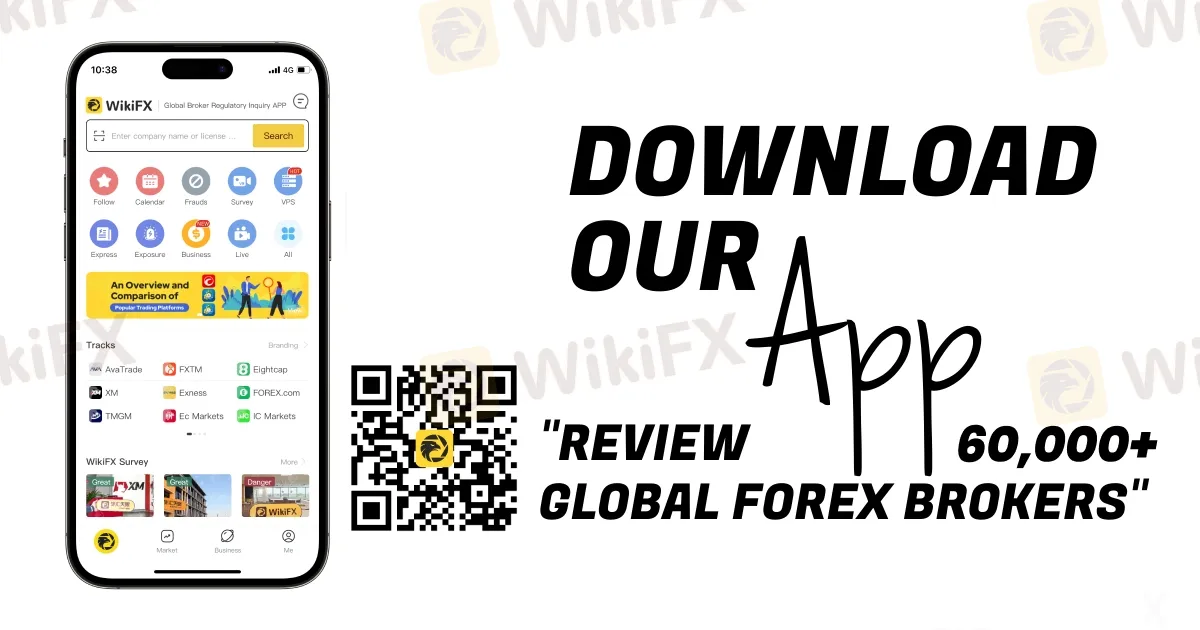
Disclaimer:
The views in this article only represent the author's personal views, and do not constitute investment advice on this platform. This platform does not guarantee the accuracy, completeness and timeliness of the information in the article, and will not be liable for any loss caused by the use of or reliance on the information in the article.

In the Forex Market, Trust Is Not a Promise — It’s Verified Through Safety, Transparency, and Support
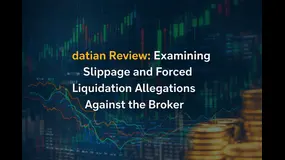
Did you face losses due to a sudden change in the trading price on the datian platform? Were your transaction records deleted by the Hong Kong-based forex broker? Did the broker liquidate your trading account multiple times despite not reaching the stage where it mandated this move? Have you experienced heavy slippage on the trading platform? Concerned by these issues, traders have complained about the broker online. We will let you know of these with attached screenshots in this datian review article. Keep reading!
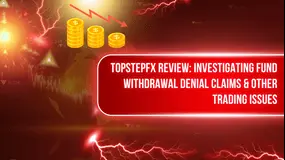
Did you face constant rejections of your fund withdrawal applications by TopstepFX? Have you been denied withdrawals in the name of hedging? Did you witness an account block without any clear explanation from the forex broker? There have been numerous user claims against TopstepFX regarding its withdrawals, payout delays and other issues. In the TopstepFX review article, we have investigated the top complaints against the US-based forex broker. Keep reading!
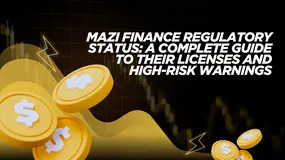
When choosing a broker, the first question is always about safety and legitimacy. Is my capital safe? For Mazi Finance, the answer is clear and worrying: Mazi Finance is an unregulated broker. While the company, MaziMatic Financial Services LTD, is registered in the offshore location of Saint Lucia, this business registration does not replace strong financial regulation from a top-level authority. Independent analysis from regulatory watchdogs shows a very low trust score, made worse by official warnings from government financial bodies and many user complaints about serious problems. This article provides a clear, fact-based analysis of the Mazi Finance regulation status. Our goal is to break down the facts and present the risks clearly, helping you make an informed decision and protect your capital.
